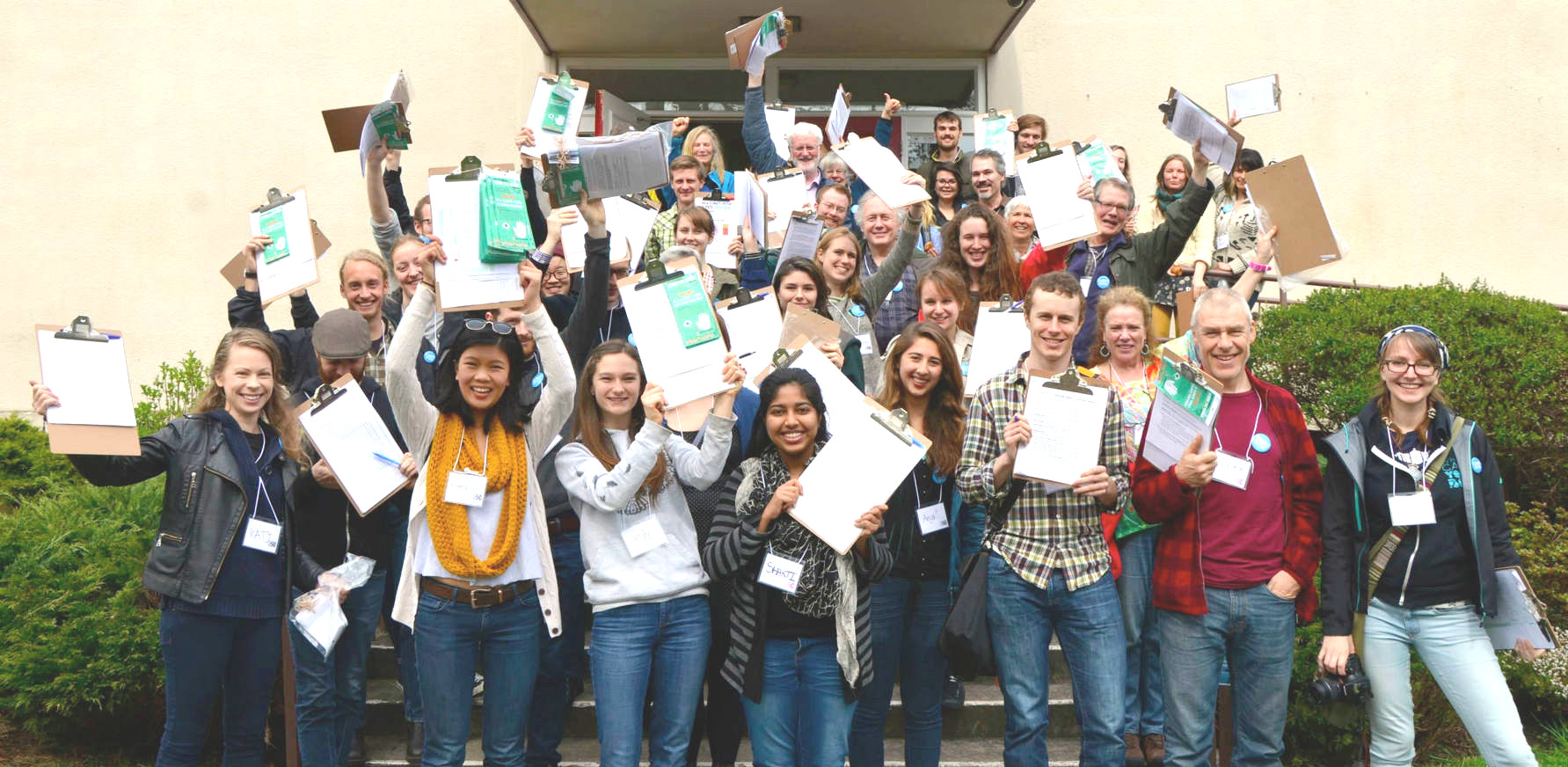Kinder Morgan’s controversial Trans Mountain pipeline is pitting First Nations and climate science against industry and the federal and B.C. governments. rabble’s Alyse Kotyk is investigating how TMX will impact British Columbians in the lead-up to the May election. Read her preceding pieces here, here and here.
University carbon divestment movements in B.C. are encouraging fellow students to keep recently approved massive fossil fuel projects like the Kinder Morgan pipeline top of mind when they go to the polls in May.
UBCC350, SFU 350 and the Capilano Students’ Union are part of a non-partisan coalition called Young Climate Voters BC. The group has launched a campaign, Together for Tomorrow, which aims to empower youth to vote and show political candidates that climate action is a priority for young people.
Tosh Turner is an international development and political science student at SFU. He is also a member of the campus fossil fuel divestment movement, SFU 350. Currently, the university has committed to reduce the carbon footprint of its investments by 30 per cent by 2030. However, Turner wants more action from both his school and from the provincial government to fight climate change.
“I would like to see the university divest 100 per cent because I don’t think students’ scholarships should be funded by businesses and corporations that are selling commodities that cause harm,” he said.
Young voters looking to parties’ stance on climate
With the fossil fuel divestment groups focusing their efforts on the upcoming election for the time being, Young Climate Voters BC is encouraging youth to evaluate candidates’ stances on climate in their riding. Turner hopes candidates will consider how climate-conscious initiatives can be a part of all infrastructure projects throughout the province over the long-term.
“I would personally like to see that the political parties are focused on the substantive changes that need to be made rather than greenwashing a lot of the conversation,” he said.
“Broadly speaking, I would hope that the climate conversations aren’t relegated to simply how much carbon we’re emitting, but what kind of projects we’re focused on.”
Grace Hermansen, a philosophy student at UBC, has been a part of UBCC350, the university’s fossil fuel divestment group since 2014. She said it’s not enough to simply get youth to come out and vote.
“We’ve tried to encourage students to think about electing leaders that would implement effective climate action,” she said. “So this [campaign is about] both values you agree with in terms of climate change, but also considering which candidates would be the most likely to win.”
To help identify these values and candidates, Young Climate Voters BC has compiled a climate report card for the three major parties, showing where they stand on clean democracy, secure economy, Indigenous sovereignty and on controversial projects like Kinder Morgan’s Trans Mountain proposal.
Hermansen said she hopes to “increase positive messaging around youth voting and create voting as more of a social norm for young people.”
Environment is a key issue for youth
According to a public opinion poll taken by The Forum Poll earlier this month, nearly a quarter of British Columbians said the environment will decide their vote in the provincial election. This figure was even higher for voters under the age of 34, as nearly 28 per cent said their vote would be motivated by climate issues.
Jolan Bailey, a campaigner at LeadNow, said it’s important that candidates don’t underestimate the youth vote.
“In the last federal election, we saw a huge turnout from the youth which, I think, played an instrumental role in defeating Harper,” he said. “I don’t think anyone really saw it coming.”
Bailey echoed that the environment is an important issue for young voters.
“I think climate is going to be a huge issue and related to that, the Kinder Morgan pipeline, fracking in northeastern B.C., all the kind of associated environmental impacts that come along with extractive industries,” he said. “Young people really get it on climate change.”
But Bailey said he hopes that all B.C. residents — young or old — realize they have an important role to play in the May election.
“In a climate where we literally have the RCMP investigating Kinder Morgan for illegal donations to the B.C. Liberal Party and the scandals in the media like every single week, I think there really is an appetite for change and the difference in whether Christy Clark wins again or not is really going to come down to whether people show up,” he said.
“If we all step up and get involved in this election, we can change the government.”
Alyse Kotyk is a Vancouver-based writer and editor with a passion for social justice and storytelling. She completed her undergraduate degree at Queen’s University and studies journalism at Langara College. Alyse was the editor of Servants Quarters and has written for the Queen’s News Centre, Quietly Media and the Vancouver Observer. She was rabble’s 2015-16 news intern.
Image: togetherfortomorrow.ca
Like this article? Please chip in to keep stories like these coming.



